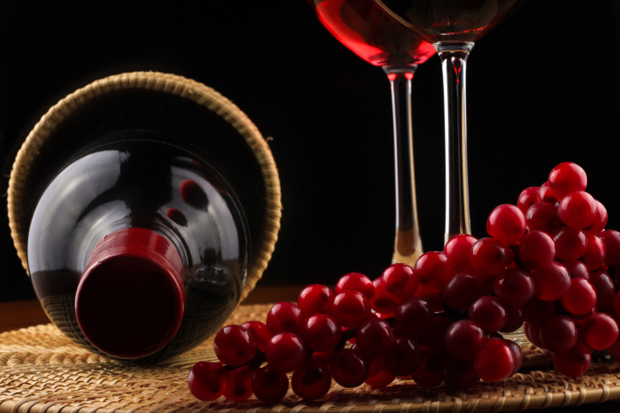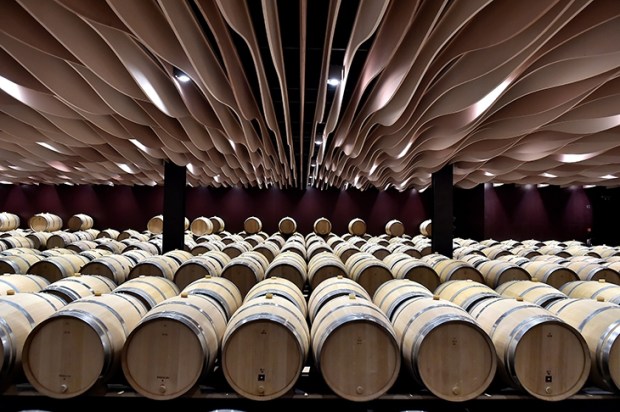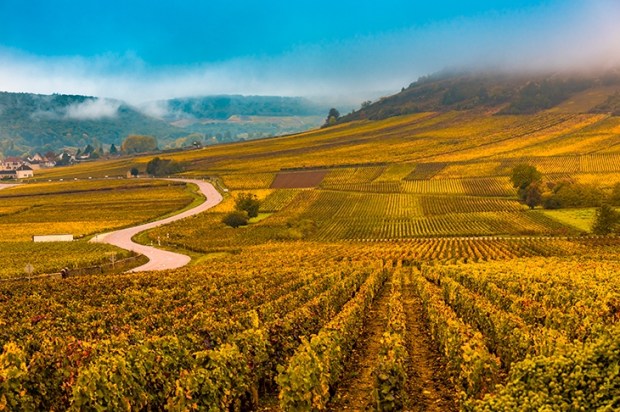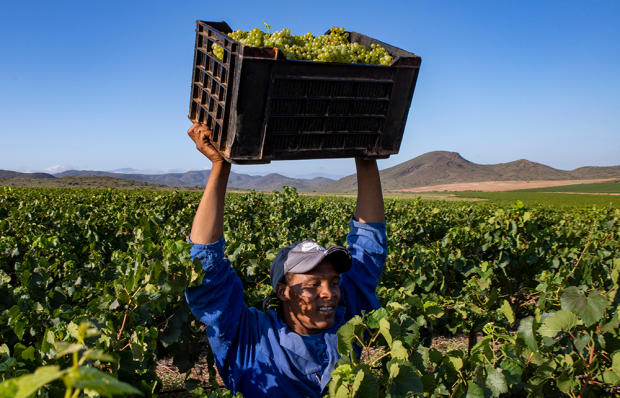There is only one answer to the question ‘Burgundy or claret?’ ‘Yes, but never in the same glass.’ Yet I am about to make an observation which cannot be true. I think that good Burgundy sets the conversation ranging widely in a way that claret does not equal. If one was a mystic, there would be an easy explanation. Bordeaux is a fine culture; Burgundy, a transcendent civilisation, whose glories express the paradoxes of the human condition. Over the centuries, Burgundy often revelled in grandeur: equally often, relapsed into misery (consider the career of Charles le Temeraire, who came close to becoming a Burgundian Charles XII). The highest expressions of its genius nourish the illusion that man can transcend his limitations. That is indeed an illusion.
As always, where les douceurs de vie flourish, war follows. Indeed, warfare has an advantage. Developments in artistic technique do not always lead to improvements in quality. But man’s ability to kill his fellow men is relentlessly enhanced.
There is another difference between Burgundy and claret. In the Côte d’Or, even the greatest vineyards have not lost contact with their peasant roots. It is easier to remember that wine is an agricultural product, benefiting from Ceres’ bounty but subject to her whims. During the 2013 Burgundian growing season, there were plenty of whims. On 23 July, there was as bad a hailstorm as the oldest living inhabitant could remember. Chablis suffered terribly, as did Meursault, and there were grape massacres in Pommard and Beaune. Where possible, the Burgundians defend themselves from nature’s hostility. Birds are rarely a threat to the grapes. As Jasper Morris explains, they have almost all been eaten. But there are few counter-measures against heat or rain at the wrong time — let alone hail. Given that the Burgundian producers are under continuous threat from the French tax system, it seems harsh that the climate should add to their burdens.
Even so, in 2013, the Burgundians overcame adversity to a remarkable degree. It will not be a large vintage, yet judging by the tastings that I have attended, there is a great deal of quality. I only wish I had better news about the price. Richard Berkley-Matthews of Clarion Wines has appeared in this column before, due to his role in promoting the Italian wines of the Order of Malta. He also specialises in Burgundy and laid on some superb 2013s.
We began by raising a glass to the memory of Patrick Bize, a delightful fellow. I have never been disappointed in anything from Simon Bize, the family firm that he had run with zest and flair. Pierre was only 61. Menaced by mortal illness, he had fought hard, as befitted a countryman of Jean sans Peur and Charles le Temeraire. As with them, alas, boldness and fearlessness eventually succumbed. He died not long after the harvest was over. It was as if he had been willing himself to hang on until he could safely go off duty.
We moved on to Domaine Darviot-Perrin, a house that should be better known. It has established a reputation for perfectionism. Didier Darviot managed to make some Meursault, and his 1er Cru Perrières was full of power and promise. It will last and last. A Clos Vougeot from Arnoux-Lachaux was outstanding, as it ought to be at over £100 a bottle in bond. The range of Chassagne–Montrachets from Fontaine-Gagnard were almost equally covetable and seemed cheap by comparison (but only by comparison). It you wanted to introduce someone to Chardonnay, they exemplify its subtleties and delights.
All this made me think of Pluto, who kidnapped and ravished Ceres’ daughter Proserpina. More recently, he has given his name to Plutocrats. Clearly he was an unattractive character — but my goodness, those marvellous bottles full of Ceres’ benefaction: plutocracy would have its attractions.
Got something to add? Join the discussion and comment below.
Get 10 issues for just $10
Subscribe to The Spectator Australia today for the next 10 magazine issues, plus full online access, for just $10.
You might disagree with half of it, but you’ll enjoy reading all of it. Try your first month for free, then just $2 a week for the remainder of your first year.















Comments
Don't miss out
Join the conversation with other Spectator Australia readers. Subscribe to leave a comment.
SUBSCRIBEAlready a subscriber? Log in